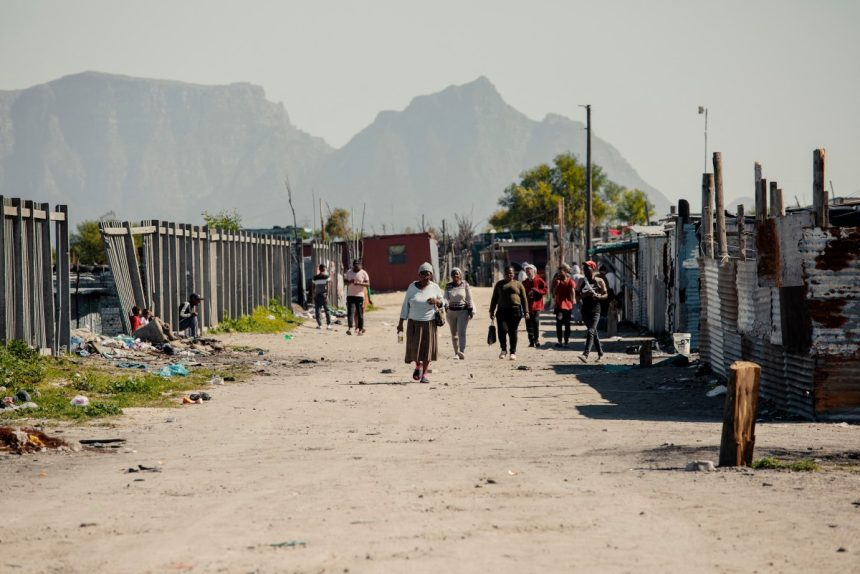Some residents of Niger, Kogi and Nasarawa State on Wednesday advanced various reasons why Federal Government-owned housing estates remained largely unoccupied.
They told the News Agency of Nigeria (NAN) that unfinished structures, and lack of affordability remained the main reasons why most of the estates had no tenants.
They also said that the largely uncoordinated nature of allocation which ensured that illegal occupants took over the estates had also compromised government’s plans to make houses available to the populace through the National Housing Programme.
Housing stakeholders in Nasarawa State attributed the proliferation of unoccupied housing estates in the country to unfavorable housing policies of the governments at all levels and the expensive rents.

Mr. Richard Embugus, Deputy Director, Architecture, Ministry of Works, Housing and Transport, Nasarawa State, said potential residents were also discouraged by bad roads, lack of perimeter fencing, shortage of reticulated water supply and poor landscaping.
He said potential tenants and buyers considered the absence of these facilities as additional burden on their income.
Embugus said both state and the federal governments should give a waiver on the cost of building materials and other infrastructure to reduce the burden on potential subscribers.
“There are agencies of government that are saddled with certain responsibilities like water supply, road construction and electricity supply.
“Government should engage the services of these agencies to provide those services.
“Let this be part of governments’ contribution to the provision of houses without putting the burden on up-takers of the houses. These factors are responsible for the hike in housing estate,” he said.
Embugus further said that the government should explore other ways to make housing estate affordable such as the use of indigenous building materials available in any particular state.
“For example in Nasarawa State, we have abundant laterite, and can conveniently serve as a major building element.

“We have red burnt bricks in South-South they have bamboo. By the time you use these materials the cost of building will be drastically reduced.
“We are talking about low-cost housing estate; that means a roof over your head, it mustn’t necessarily be very expensive,” he said.
He said most housing estates built by governments were far from government office areas, and vulnerable to insecurity, thereby making many civil servants to lose interest in occupying them.
Mr. Samson Attah, a civil servant, attributed the proliferation of unoccupied estates built by the governments and private developers to the high rents.
According to him, it is difficult for a civil servant who earns N150,000 per month to pay N9 million or more for the 30 per cent equity as demanded in most cases.
He recommended that the Federal Government should adopt rent-to-own policy instead of a 30 per cent equity policy.
He advised that the Federal Government should make it a policy for civil servants to access funds upfront from the Federal Mortgage Bank to the tune of between N10 million and N15 million, upon securing a job.
The fund, he said, should be used by the civil servant to acquire the house.
Mr. Ikechukwu Ikeagwuani, an Energy System Engineer and a tenant, decried the hike in rent being experienced in the country.
He called on the governments to build more housing estates in states and local government areas and make them closer to the people.
Also in Niger, Federal Government’s houses remain unoccupied for years due to several challenges, including non-completion, unfinished structures and affordability.
Dr. Bala Yahaya, Zonal Town Planner, Federal Ministry of Works and Housing, said some of the affected housing estates include Shagari Estate , Niger Housing Programme and the one on Minna-Bida road.
He said other affected estates are Shagari Housing Estate in Bida, New Bussa, Kontagora, Kabara, Kutigi, and Lapai.
Yahaya attributed the non-occupation of the houses to their high prices.
According to him a 3-bedroom semi-detached house sold for as high as N16.4 million between 2019 and 2020, while a two-bedroom semi-detached house cost over N12 million and one-bedroom apartment cost N1 million.
He also said some of the housing estates were built under Public-Private Partnership (PPP), but were in a bad condition.
He said making the allocation process easier and the houses more affordable would encourage more residents to subscribe to them.
In Kogi, NAN checks showed that both the federal and state governments have housing estates which are largely unoccupied.
The estates are all located at Felele and Crusher Quarters in Lokoja Local Government Area of the state.
On Jan. 3, Gov. Ahmed Ododo, ordered the evacuation of some persons illegally occupying the 260 National Housing units in Phases I, II and III, located at Crusher already paid for by subscribers.
The state Commissioner for Housing and Urban Development, Mr Taiye Abanika, who announced their sack in a statement issued in Lokoja, warned against disobeying the order.
“The Kogi Government, on this day, January 3, 2025, directed the illegal occupants of the national housing buildings at Crusher, Lokoja to vacate with immediate effect.’’
Abanika said that the illegal occupation of the housing units had compromised the National Housing Programme designed to provide affordable housing solutions for Nigerians.
He said that Phase I with 76 units, comprised four one-bedroom semi-detached bungalows, 48 two-bedroom semi-detached bungalows and 24 three-bedroom semi-detached bungalows.
“Phase II has 92 units, comprising 20 one-bedroom semi-detached bungalows, 28 two-bedroom semi-detached bungalows, and 44 three-bedroom semi-detached bungalows.
“Phase III has 92 units, comprising 16 one-bedroom semi-detached bungalows, 28 two-bedroom semi-detached bungalows, and 48 three-bedroom semi-detached bungalows.
“Unfortunately, over 85 per cent of the houses in the various estates are currently being occupied illegally, with some individuals even selling the houses to unsuspecting buyers,’’ he said.
A real estate expert, Mr David Akeju, blamed high cost, economic instability, policy and regulatory issues, among others for the low patronage received by the estates.
Akeju said many of the houses were not affordable for the target market.
He said that the instability in Nigeria’s economy, including inflation, currency fluctuations and recession, had great effects on housing demand.
“Many potential home buyers in Nigeria face challenges in accessing mortgage finance or other forms of credit to purchase homes.
“Some of these housing projects may also be located in areas with inadequate infrastructure, such as roads, water supply, and electricity, making them less attractive to potential occupants.
“Some government-built or real estate developer-built houses may be located in remote areas, far from urban centers, for employment opportunities, and social amenities.
“In addition, the process of allocating or purchasing these houses may be slow and cumbersome, deterring potential buyers, as well as absence of effective policies and regulations,’’ he told NAN.
The real estate expert, however, said that addressing the challenges would require a multi-faceted approach that involves government, private sector and civil society organisations.
He said there was need for the Federal Government to develop and implement a comprehensive national housing policy that outlines its vision, goals and strategies for addressing the housing deficit.
“Government should also establish affordable housing programmes that provide subsidies, grants, or low-interest loans to low-income households.
“Governments at all levels must promote and encourage public-private partnerships to develop and finance housing projects,” he said.
Another housing expert, Mr Lawson Igwe, stressed the need to develop housing projects that are inclusive and accessible to all, regardless of income, age or ability.
Igwe also recommended that government should engage communities to identify their housing needs and develop community-led housing projects.
A tenant, Mr. Richard Femi, who resides at Phase One Estate Lokoja, decried the exorbitant hike in house rent in Lokoja in the last one year and urged government to regulate rent.
“Most of the houses built by government and real estate developers are just too high to afford for us as civil servants.
“Also, the conditions the developers are giving us are just too stringent to meet.
“Between 2021 and 2023, an average standard 2 bedroom flat in Lokoja, was in the range of N200,000 to N250,000, but as at 2024 and now, it is between N400,000 to N500,000.
“So, where do ordinary citizens, especially the civil servants like me, get this huge amount of money from and you said people should not steal?
“We are calling on government to immediately address the issue of exorbitant hike in house rent especially in Lokoja, because it is getting out of hand,” Femi said.
A landlord, Mr. Abubakar Usman, said the hike in house rent was due to the high cost of building materials arising from the devaluation of naira.



